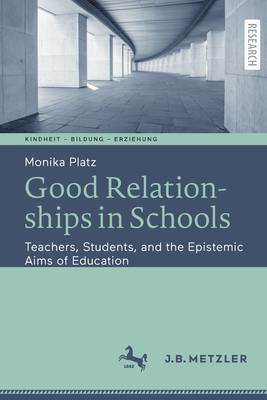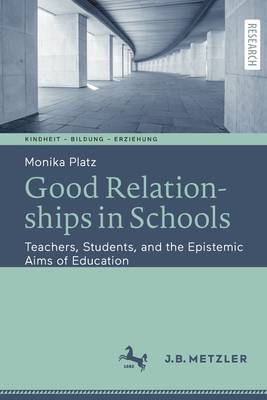
- Retrait gratuit dans votre magasin Club
- 7.000.000 titres dans notre catalogue
- Payer en toute sécurité
- Toujours un magasin près de chez vous
- Retrait gratuit dans votre magasin Club
- 7.000.000 titres dans notre catalogue
- Payer en toute sécurité
- Toujours un magasin près de chez vous
79,45 €
+ 158 points
Description
The relationship between teacher and student is an important element of school education and as such irreplaceable: If we want schools to be good places for those who teach and learn there, we must make sure that the educational relationships between teachers and students are good, too.
In research about school education, surprisingly little attention is paid to the normative dimension of the relationship between teacher and student. This lacuna points to a desideratum in the philosophy of education: More should be said about the normative structure of the teacher-student relationship, its role in teaching and learning, and its final value for teacher and student.
Answering these fundamental philosophical questions is the core of this book. It offers a normatively rich concept of a good teacher-student relationship that is based on the analysis of two major relationship goods: trust and care. Moreover, the book explains the instrumental value of a good educational relationship forthe student's achievement of epistemic aims of school education as well as the final value of such a relationship for teacher and student.Spécifications
Parties prenantes
- Auteur(s) :
- Editeur:
Contenu
- Nombre de pages :
- 110
- Langue:
- Anglais
- Collection :
Caractéristiques
- EAN:
- 9783662641361
- Date de parution :
- 12-09-21
- Format:
- Livre broché
- Format numérique:
- Trade paperback (VS)
- Dimensions :
- 156 mm x 234 mm
- Poids :
- 176 g







